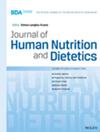Prevalence of Emotional and Binge Eating Among Patients With Obesity Attending a Specialist Weight Management Service for Bariatric Surgery in the United Kingdom
Abstract
Background
Emotional eating (EE) is a tendency to consume food in response to positive or negative emotions, leading to obesity and an increased Body Mass Index (BMI). Evidence supports the positive association between EE and binge eating disorder (BED), but little is known about its prevalence among patients referred for bariatric surgery and the psychological characteristics of this patient population. We aim to examine (i) the prevalence of binge eating and EE, (ii) its association with the prevalence of anxiety, depression, diabetes and hypertension and (iii) the correlation between anxiety and depression with emotional and binge eating behaviours among patients attending a regional bariatric service in the UK.
Method
A cross-sectional case file design involving 285 participants (mean age = 43.88 ± 11.5, female (80.7%) and male (19.3%)) was used. Outcome measures included body weight, BMI, the Weight Loss Readiness (WLR) Questionnaire, Generalised Anxiety Disorder-7 (GAD-7), Patient Health Questionnaire (PHQ-9) and Alcohol Use Disorders Identification Test- Consumption (AUDIT-C).
Results
Within this patient group, the prevalence of binge eating and EE were 28.8% and 22.1% respectively. Among these, 19.3% had diabetes mellitus, 24.8% hypertension, 21% harmful alcohol use, 65% had high anxiety score and 77% high depression scores. Most correlations between body weight and variables like AUDIT-C, GAD-7, PHQ-9 scores and WLR scores for hunger, binge eating and EE were not significant. A positive association was observed between depression and anxiety with binge eating, and EE behaviours.
Conclusion
Patients awaiting bariatric surgery have a wide range of mental and physical health comorbidities, with evidence of positive associations between higher depression and anxiety levels with abnormal eating behaviours. These findings highlight the need for screening for comorbidities in this patient population to optimise patient outcomes postbariatric surgery.

 求助内容:
求助内容: 应助结果提醒方式:
应助结果提醒方式:


